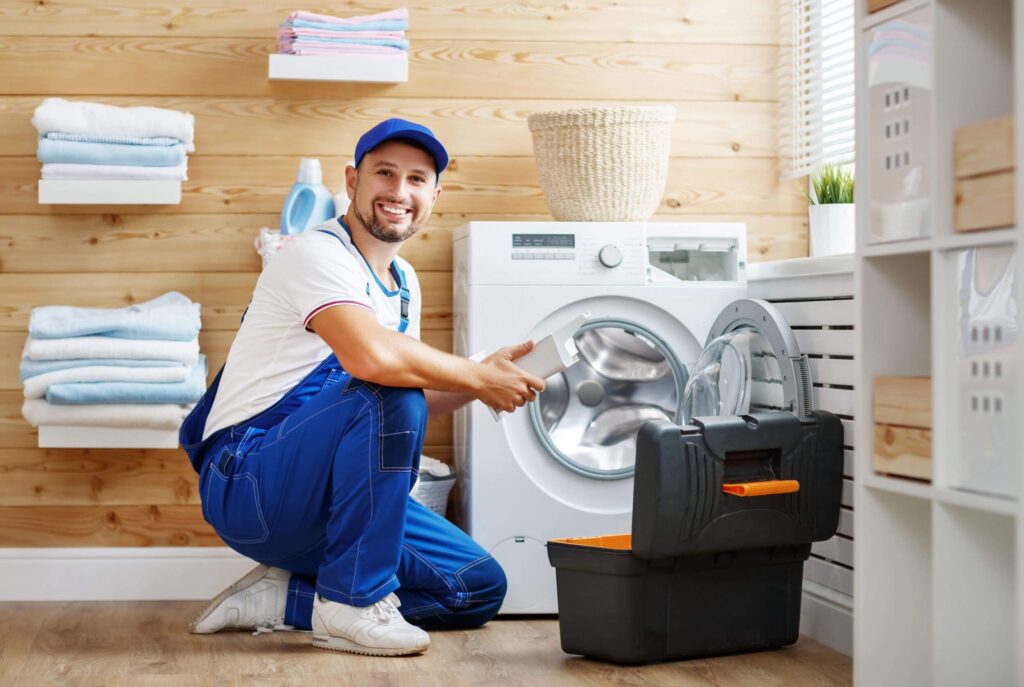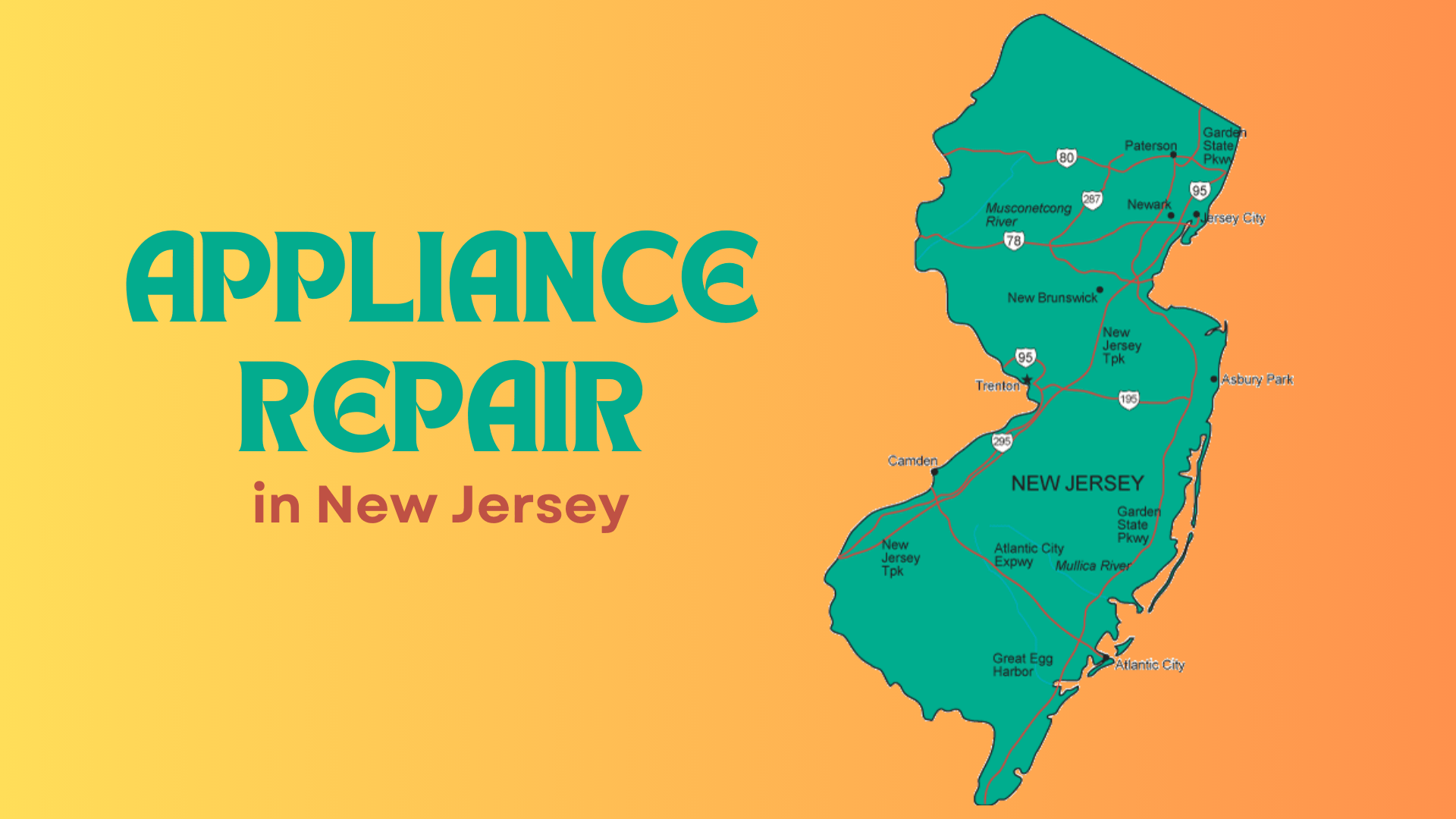The average lifespan of home appliances ranges between 10 to 15 years, yet unpredictable malfunctions can arise at any moment. Few experiences conjure the same sense of urgency as a refrigerator that ceases to cool on a hot summer’s day.
Navigating appliance repair in New Jersey involves a blend of technical acumen and customer service excellence. Homeowners are advised to seek professionals who not only understand the intricacies of their machines but also respect the sanctity of their homes.
Recognizing Common Appliance Faults
Discerning the onset of appliance repair issues often begins with subtle cues, such as deviations in performance or unfamiliar sounds. A washing machine may begin to emit a grinding noise, signaling possible bearing failure, while a refrigerator’s consistent humming could abruptly cease, indicating compressor distress. It is imperative for homeowners to remain vigilant to changes in their appliances’ behavior, as early detection often leads to less complex and more cost-effective repairs. Unattended faults can escalate, culminating in more severe malfunctions that could warrant extensive overhauls or complete replacements.
Identifying Signs of Malfunction
Early detection of appliance issues is vital. Notice if your appliance starts operating louder than usual or shows inconsistent performance signals.
If your appliance emits unusual odors or leaks, these are red flags indicating an internal issue requiring immediate professional assessment.
Regular maintenance prolongs appliance lifespans significantly.
It’s essential to observe your appliances for any subtle changes. Whether it’s a dishwasher that no longer cleans effectively or a dryer taking longer to dry clothes, address these issues promptly to avoid costly repairs.
Appliance Lifespan and Maintenance Tips
Appliances are subject to wear and tear, thus having a finite operational lifespan.
To extend the longevity of your appliances, a regimented maintenance routine is indispensable. Regularly check seals and gaskets to ensure they are clean and free from obstructions which could impair functionality. For appliances that involve water, such as dishwashers or washing machines, inspect hoses and connections for leaks or signs of wear to prevent potential water damage or mold growth. Filters, whether in your range hood, dryer, or refrigerator, must be cleaned or replaced periodically to maintain peak performance.
Moreover, be mindful of your appliance’s operational cues. Unusual sounds or erratic behavior can be early indicators of internal issues or component fatigue. Addressing peculiar noises promptly, such as grinding or clicking, can forestall further complications. Calibrating appliances according to manufacturer specifications is integral to preserving their functionality and efficiency.
Lastly, consider professional servicing as part of your appliance maintenance strategy. Even with careful maintenance, intricate systems within appliances may require expert attention. Engaging a qualified technician for regular checkups can identify potential problems before they aggravate. This foresight not only preserves the appliance’s condition but also ensures safety and conserves energy by maintaining optimal operation.
Selecting Appliance Repair in New Jersey Services
Choosing the right repair service is paramount to ensure your appliance is restored to its prime condition with minimal downtime. A reputable company offers warranties on their work, indicating confidence in their expertise.
When vetting potential service providers, certification in various appliance types and brands is crucial. Moreover, consider the provider’s availability to ensure prompt and efficient resolution, and the transparency of their pricing structures to avoid unexpected costs.
Providers boasting “factory-authorized” or “certified technicians” are typically stringent in adhering to high standards, which can be pivotal in achieving superior repair quality.
Importance of Professional Expertise
Precision in appliance repair in New Jersey is critical, requiring technical proficiency and specialized knowledge.
- Safety Assurance: Skilled technicians are trained to handle repairs safely, minimizing risks of electrical hazards and personal injury.
- Warranty Preservation: Professional service ensures warranty terms remain intact, preventing voidance due to unauthorized tampering.
- Advanced Diagnostics: Experts possess the tools and know-how to accurately diagnose and address the root of the problem.
- Optimal Performance: Properly repaired appliances function at peak efficiency, reducing energy consumption and prolonging lifespan.
- Cost Effectiveness: Efficient repairs can prove cost-effective over time, preventing recurrent malfunctions and potential replacements.
Assessing appliance malfunctions requires an eye for detail and enduring expertise.
Ultimately, the value of professional expertise cannot be overstated in appliance repair.
Evaluating Repair Vs. Replacement Costs

Determining whether to repair or replace an appliance hinges on a comparative cost analysis.
- Age of the Appliance: Older units close to their lifespan’s end may warrant replacement.
- Cost of Repairs: If repairs exceed 50% of the replacement cost, consider a new appliance.
- Energy Efficiency: Upgrading to energy-efficient models can lead to long-term savings.
- Frequency of Breakdowns: Frequent malfunctions suggest replacement might be more cost-effective.
- Performance Issues: Decline in appliance performance, even after repairs, can signal the need for replacement.
The decision often culminates in considering the longevity and efficiency of the current unit.
Expert appraisal ensures homeowners make informed decisions, balancing immediate costs with future investments.
Understanding Repair Process
Commencing appliance repair in New Jersey necessitates a structured approach, blending technical acumen with systematic methodology. Prior to any intervention, a thorough diagnostic assessment unfolds, pinpointing the crux of the malfunction. This phase is crucial – akin to a medical examination for an ailing patient, where precision in identifying symptoms leads to an accurate diagnosis and a strategic repair plan. Following this, seasoned technicians employ specialized tools and OEM (Original Equipment Manufacturer) parts to ensure a repair that meets stringent quality standards. Post-repair, rigorous testing is performed to confirm the appliance has been restored to its optimal operational state, thereby providing homeowners with assurance and reliability in the service rendered.
Diagnosis and Repair Timeframes
Appliance repair in New Jersey begins with a critical diagnostic stage, which in itself is an intensive process requiring precision and patience. Upon service request, technicians prepare to investigate the issue comprehensively, but homeowner involvement could expedite preliminary assessments, emphasizing the value of clear communication and collaboration.
Timing varies significantly based on appliance complexity and the nature of the fault. It’s not unusual for diagnostics to conclude within the hour, though more intricate issues can extend the timeframe.
Post-diagnosis, crafting a definitive repair strategy is contingent upon the availability of parts and the extent of damage. In instances where parts must be ordered, this period can reasonably extend, reflecting on the importance of a well-versed technician with a keen eye for detail and an extensive network of suppliers.
Ensuring a realistic repair timeframe is paramount for homeowner peace of mind. Professionals should offer a window ranging from a few hours to several days, dependent upon case specifics. Clients are encouraged to inquire about expedited services if situations necessitate, but should be mindful of the potential increment in cost for such accommodations. It’s the blend of expertise and efficiency that often distinguishes a satisfactory outcome from an exceptional one.
Warranty and Service Guarates
When engaging in appliance repair services, it’s critical to comprehend the warranty conditions. Many manufacturers provide a standard warranty that covers certain repairs, parts, and labor for a predefined period.
A robust service guarantee further signals a company’s confidence in its workmanship. This often includes aspects such as a promised duration of functionality or a no-charge reparation clause if issues reemerge shortly after service.
Consequently, homeowners should meticulously review the terms and limitations of any warranty or service guarantee. These documents (typically provided at the time of purchase or upon completion of repairs) are binding agreements.
Before authorizing appliance repair in New Jersey, it’s advisable to inquire whether the service will affect the existing warranty. Some manufacturers have specific requirements about who performs repairs, potentially affecting warranty validity.
Furthermore, many service guarantees include stipulations that may limit their applicability. It’s essential to understand what is covered—and what is not—to avoid unexpected costs should an appliance malfunction again.
Ultimately the longevity and performance of your appliance post-repair hinge significantly on these protections. Selecting a repair service with a forthright warranty and a robust service guarantee provides a layer of assurance that endures beyond the immediate fix.
Legal and Safety Considerations
When undertaking appliance repair in New Jersey, compliance with the state’s regulatory standards is paramount. Certified technicians must adhere to stringent guidelines that both protect consumer rights and ensure safety during repairs.
In the realm of electrical and gas appliances, New Jersey law mandates that only licensed professionals carry out any repair or maintenance work. This protects homeowners from the risks associated with improper handling of these potentially hazardous systems.
Moreover, neglecting to follow local building codes and permit requirements can lead to legal repercussions. Ensuring that repair work is code-compliant not only promotes safety but also preserves the value of your property.
Compliance with New Jersey Regulations
Appliance repair In New Jersey falls under specific regulatory oversight, necessitating compliance with established state and local laws.
For homeowners, it is critical to engage with appliance repair services that demonstrate a thorough understanding of and adherence to these regulatory requirements. This ensures that all repair work is performed to the highest standards of quality and safety, further backed by legal legitimacy.
Contractors operating within New Jersey must be licensed, authenticating their qualification to undertake the specialized work associated with appliance repair. This licensing serves as a safeguard, reinforcing that only proficient individuals execute repairs that meet strict regulatory frameworks.
Finally, homeowners must be cognizant of the fact that New Jersey’s regulations extend to cover the utilization of replacement parts during repairs. Authentic, brand-specific parts are often mandated to preserve both appliance functionality and safety standards. Routine verification of these components helps ensure that your appliances continue to operate within the designed parameters, thereby preventing potential hazards and upholding manufacturer warranties.
Ensuring Safe Appliance Repairs
Ensuring the safety of appliance repair in New Jersey is critical for homeowners and technicians alike.
- Unplug or shut off power to the appliance before any repair begins.
- Consult the appliance’s manual for specific safety instructions and diagrams.
- Use appropriate tools and equipment that are in good condition and designed for appliance repair.
- Wear protective gear such as gloves and safety glasses when necessary.
- Verify the credentials of any technician to ensure they are qualified and licensed.
- Keep a fire extinguisher accessible in case of any mishaps during the repair process.
It’s important to prioritize electrical safety to prevent accidents.
Specialized knowledge and adherence to safety protocols are essential for a successful appliance repair in New Jersey.
